Farmers in Karangasem Regency are concerned that their cattle could test positive for foot and mouth disease. Local agricultural authorities have confirmed that there are 72 cows in, Bhuana Giri Village in Karangasem Regency that was at risk of being exposed to foot and mouth disease in the last three weeks.
Local reports do not suggest that the cattle have been tested, but farmers are reporting their cattle are showing severe clinical symptoms of the disease.
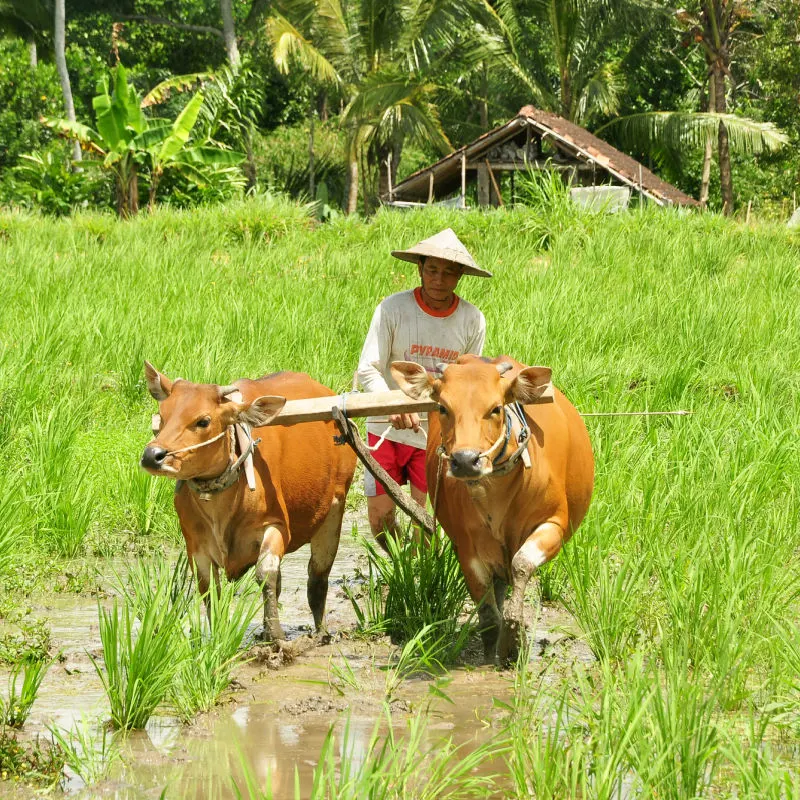
The Head of Banjar Regional Office of Poh, I Nyoman Madra, told local reporters on Monday 15th August, ‘Initially, three weeks ago there were resident cows suspected of contracting [FMD], at that time we had informed the [officials]’.
He explained how there are cattle in the area showing serious clinical symptoms and described ‘There are even cows whose hooves are peeling off’.
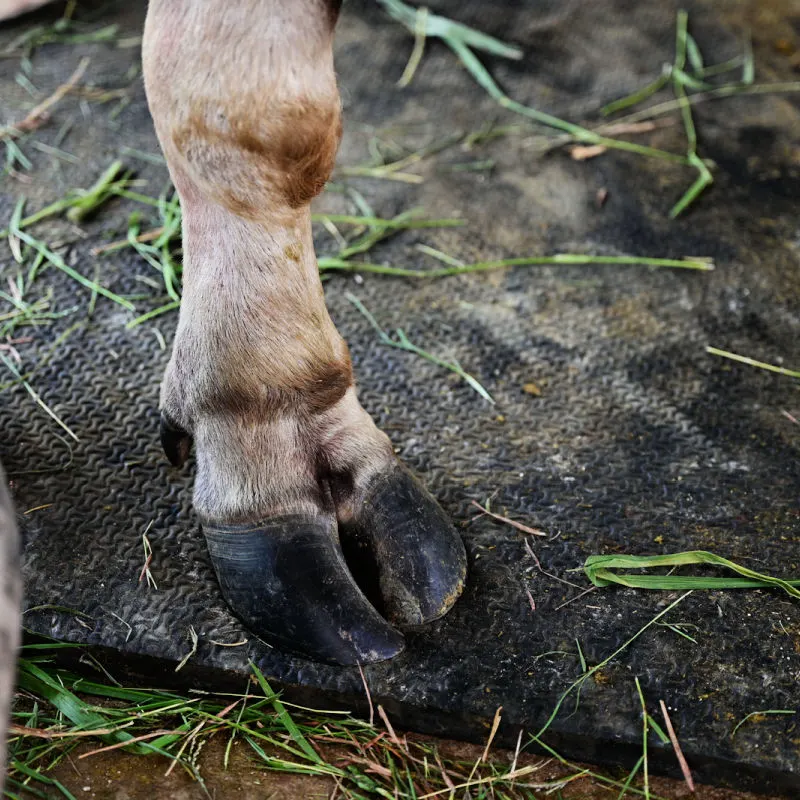
Foot and Mouth Disease is a highly contagious virus that affects animals with cloven feet such as cows, pigs, sheep, and goats. Symptoms include fever, loss of appetite, and blisters and lesions in the mouth and on the feet. If untreated or very severe, the lesions can rupture causing serious secondary infections.
In many countries, it is mandatory for any animals that test positive, or that are in contact with an animal that tests positive for foot and mouth disease to be culled. In Indonesia, this is also the case but some farmers are expressing concerns over the slow payouts of compensation for the cattle they must cull, and the slow rollout of preventative treatments.
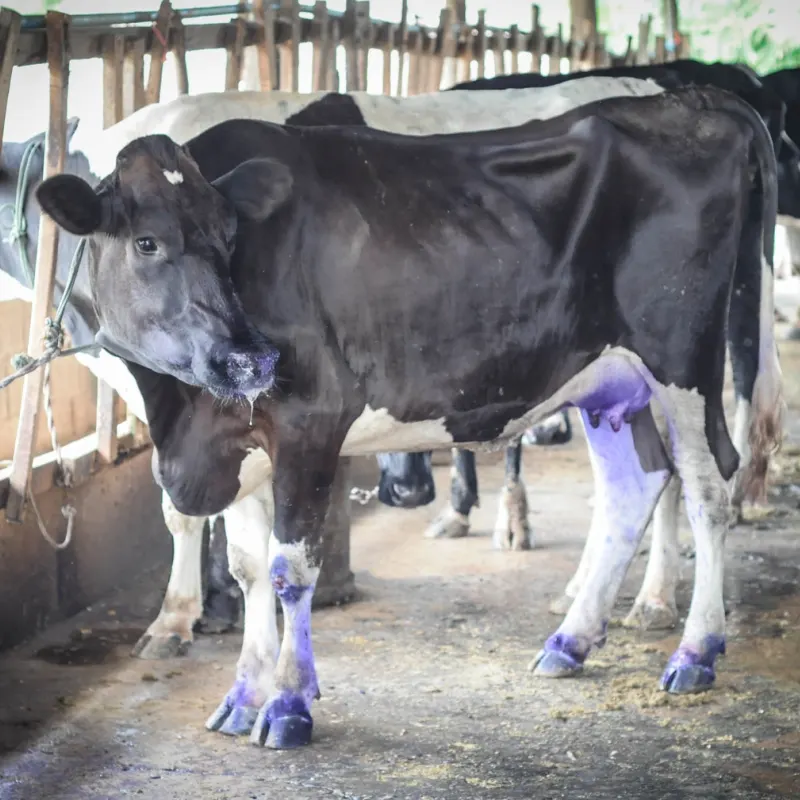
Madra told local reporters that ‘his party has conveyed about the condition of the resident’s cattle…so far there has been no follow-up from the government’. The farmers whose cattle are showing clinical signs of foot and mouth disease sought costly treatments from a private vet. The treatment costs IDR 100,000 (USD 6.80) per cow which is a considerable amount of money for a rural Balinese cattle farmer.
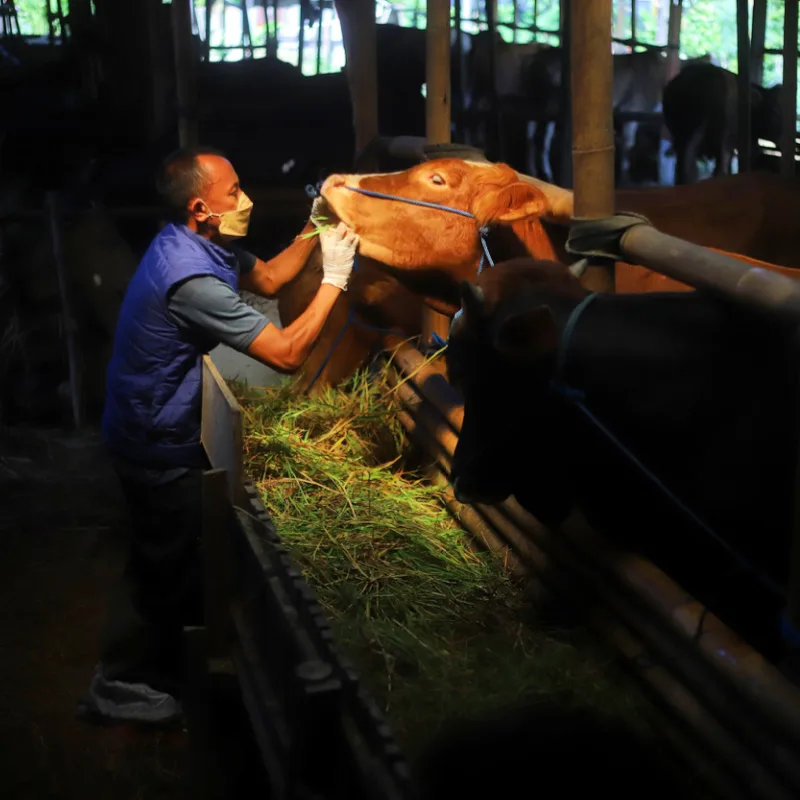
Residents and farmers in Karangasem Regency have shared that they are calling on the local government to extend free treatment for their cattle and compensation for any animals that must be destroyed, as is the case in other regencies around Bali.
Residents have also been asking for disinfectants and betadine to treat wounds. It is hoped that Karangasem Regency will receive a fair cut of the AUD 5 million that has been sent to Indonesia, Timor Leste, and Papua New Guinea by the Australian government to curb the outbreak.
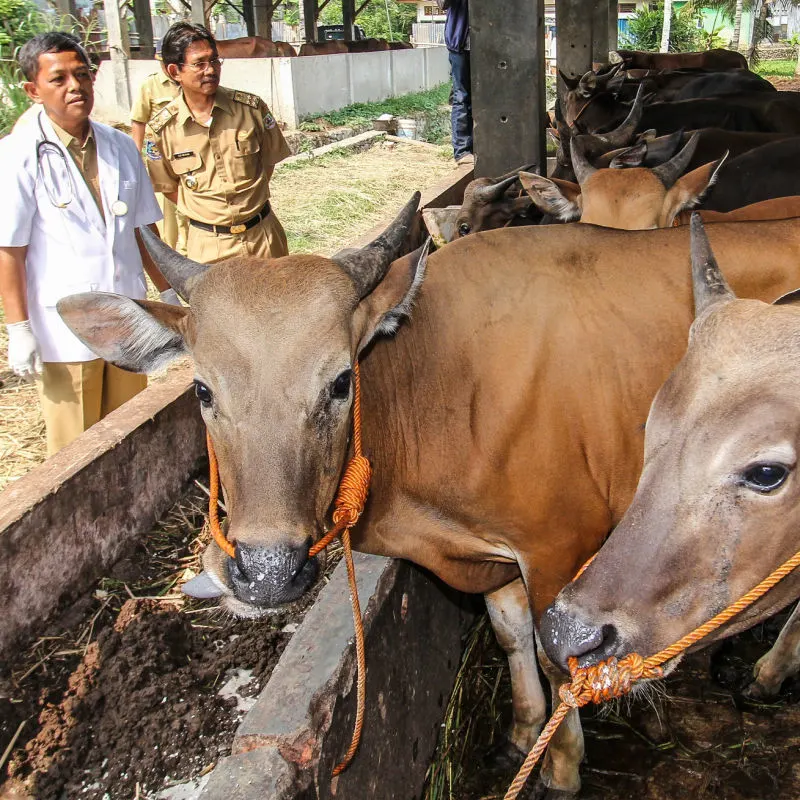
The news from Karangasem as officials in Bali are calling for Australian Senator Pauline Hanson to apologize for her recent remarks suggesting that Bali’s streets are covered in cow dung. Indonesia’s Minister for Tourism and Creative Economies called Hanson out on her untrue statements that he stated could damage Bali’s vulnerable tourism economy.
Minster Uno accompanied his rebuttal with a comedy skit from Australian-Indonesian digital creator, Damien Hoo. In the video, Hoo can be seen humorously pretending to stamp on cow dung and declare that he’s ‘ready to go home’.
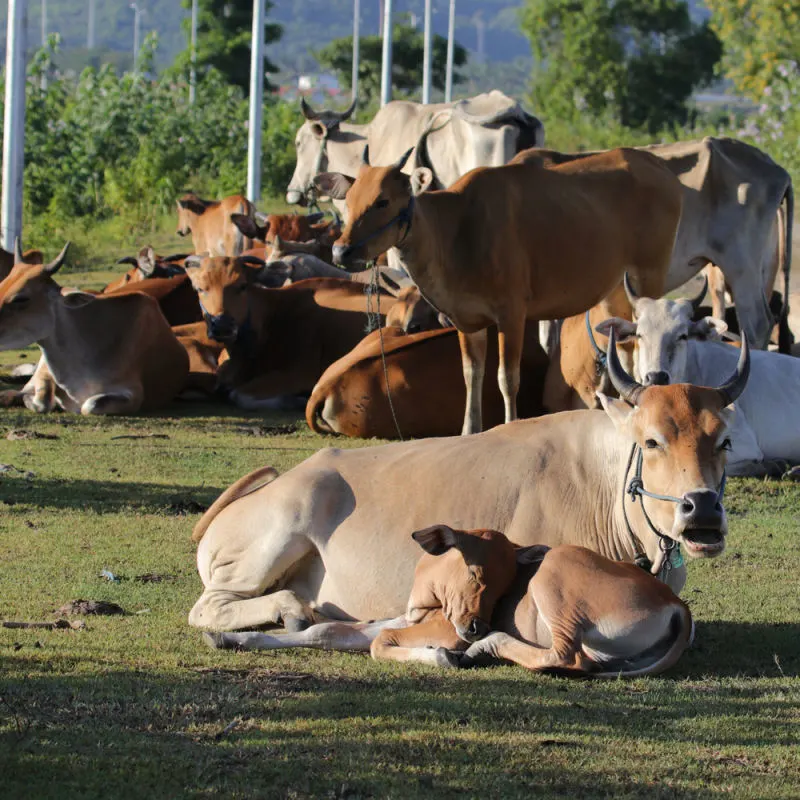
Bali authorities are treading the line of taking the situation seriously, sharing limited resources to curb the outbreak, and ensuring that Foot and Mouth Disease does not become a reason for travelers to cancel their plans. At present, travelers in Bali do not need to change their itineraries and it is still safe to visit rural and agricultural areas.
Travelers are reminded that foot and mouth disease is highly transmissible. Although people are not affected by the disease, it is possible for humans to form a bio bridge for the virus to travel from one place to another despite not being in physical contact with any livestock.
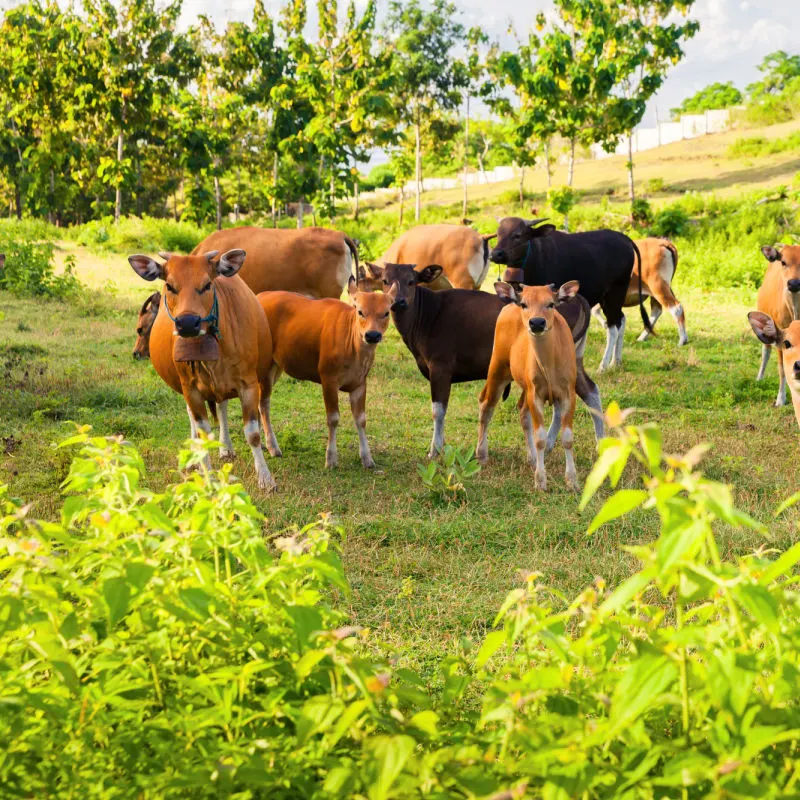
This is why Australian border officials in particular have ramped up biosecurity measures including the installation of disinfection mats and deployment of detection dogs at some airports.
Border officials have increased their risk profiling screening measures and travelers are being reminded to disinfect their shoes and clothing before they return home if they have visited rural or agricultural areas in Bali, even if they have not been in close contact with susceptible animals.
Remove All Ads & Unlock All Articles… Sign up for The Bali Sun Premium

Plan Your Bali Holiday:
Book The Best English Speaking Drivers For Airport Transfers & Tours
Choose From Thousands of Bali Hotels, Resorts, and Hostels with Free Cancellation On Most Properties
Book Cheap Flights To Bali
Don’t Forget Travel Insurance That Covers Medical Expenses In Bali
For the latest Bali News & Debate Join our Facebook Community
SUBSCRIBE TO NEW POSTS
Enter your email address to subscribe to The Bali Sun’s latest breaking news, straight to your inbox.
